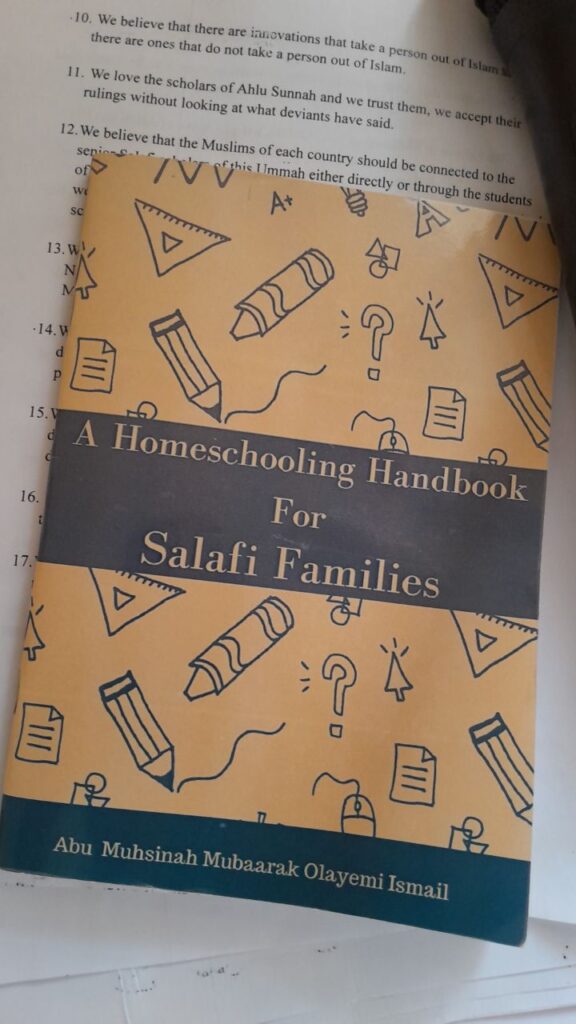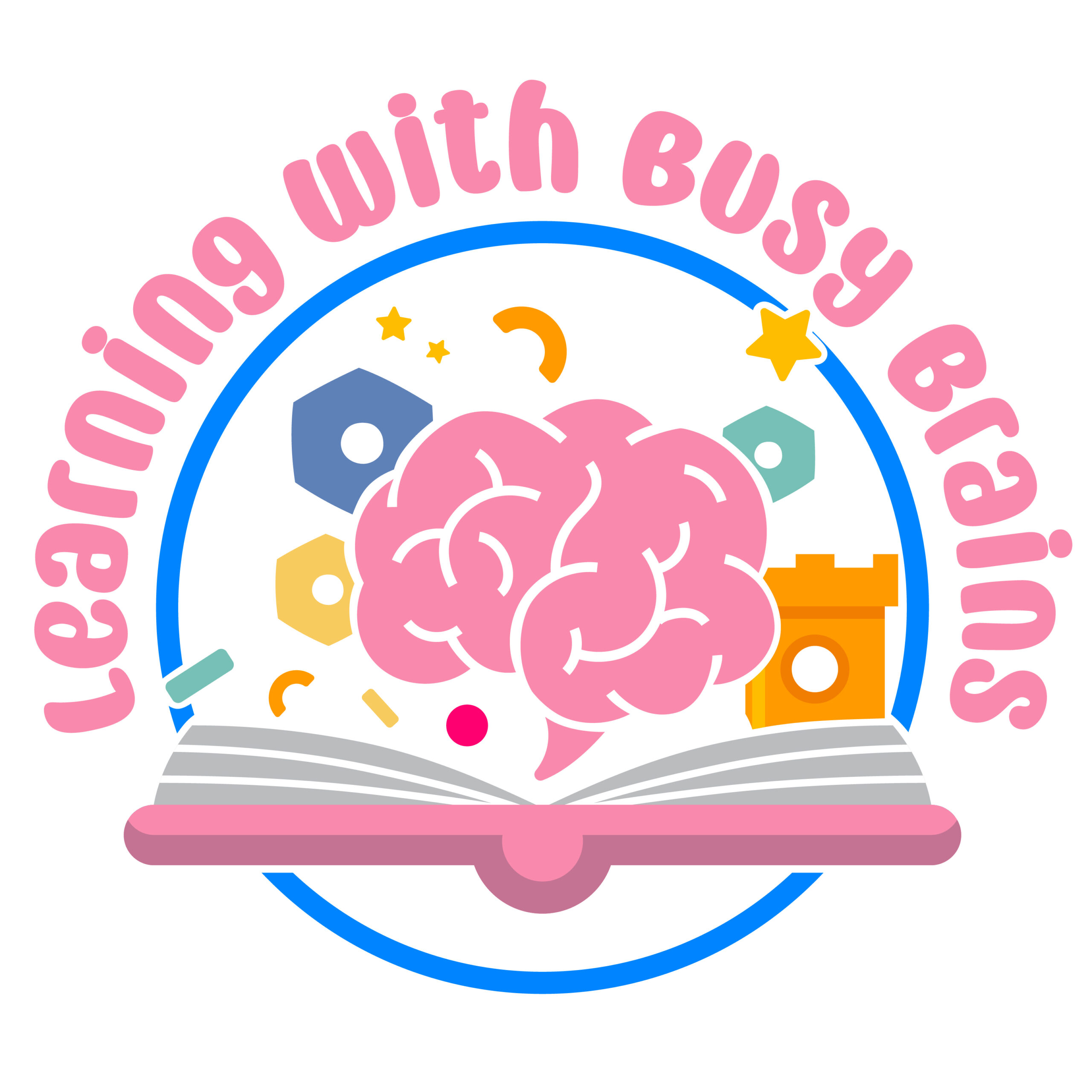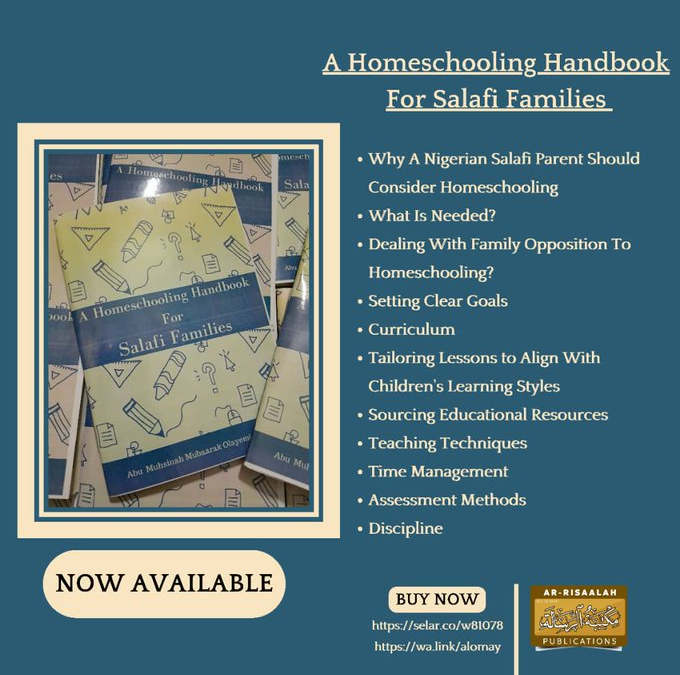This post, originally published on March 14, 2024, has been updated for accuracy and completeness. It was previously hosted on my former website, momhomeschooldiary.com, which is no longer active. I am now sharing it here on learningwithbusybrains.com.
Assalamualaikum fellow parents and educators!
Today, I’m excited to talk about a unique find that has made its way from the vibrant communities of Nigeria to my home here in Malaysia. It’s a handbook titled ‘A Homeschooling Handbook for Salafi Family,’ and it’s not just any guide: it’s a concise narrative penned by a Salafi father, Abu Muhsinah Mubaarak Olayemi Ismail, who is also a revered teacher and a guiding figure among the Salafists in Nigeria.
For a deeper dive into Salafi teachings and homeschooling, I recommend checking out more of Abu Muhsinah Mubaarak Olayemi Ismail’s works on his website, Ar Risalah Pubs. It’s a hub of knowledge that complements the Salafi teachings and offers further insights into the Salafi way of life.
I first came across this handbook on Facebook, where the author himself was sharing it. Having followed his valuable posts and contributions for a while, I knew this was something I couldn’t pass up. So, I quickly grabbed the PDF version from Ar Risalah Pubs, eager to soak in the wisdom it promised.

This handbook may be concise at 44 pages, but don’t let that fool you. Each page is a treasure trove of insights, strategies, and advice on nurturing our children with the principles of Salafiyyah. It’s a guide that addresses the Nigerian community with subtlety and depth, asking poignant questions like “Why should a Nigerian Salafi parent consider homeschooling?” Yet, its message is universal, transcending borders and cultures because it’s rooted in the same Quran, the same Sunnah, and the teachings of our beloved scholars.
As a Malaysian, I found myself nodding along as I read, recognizing the names and references that are familiar to any Salafi household. The handbook delves into the practicalities of homeschooling: dealing with family opposition, setting clear goals, tailoring lessons to align with children’s learning styles, sourcing educational resources, teaching techniques, time management, assessment methods, and discipline. It’s all presented from the unique perspective of a Salafi father: a rarity and a blessing in literature on homeschooling.
I must admit, the handbook sat on my virtual shelf for a month, untouched, as I was engrossed in producing my own homeschooling materials. But when I finally opened it, I realized what I had been missing. It was like finding a gem in the rough, a source of clarity amidst the chaos of daily life and work.
So, here’s my recommendation: get your hands on ‘A Homeschooling Handbook for Salafi Family.’ I won’t give away the details because I believe you should discover its beauty on your own. But I can assure you, it’s a resource that speaks directly to the hearts of Salafi parents everywhere, offering guidance and reassurance that we’re on the right path.
The simplicity of the book’s design seems to align well with its content and the Salafi principles of modesty and focus on substance over form. This approach can help readers concentrate on the valuable insights and teachings without the distraction of elaborate imagery. It’s a reminder that sometimes the most profound lessons come in unadorned packages, allowing the wisdom within to take center stage. I’ve noticed that the simplicity of this handbook makes it easy for me to read.
The handbook is priced at USD 5, which is approximately RM 25 when converted to Malaysian Ringgit. In my opinion, it’s a worthwhile investment.
Thank you for joining me in this conversation. I hope this handbook brings as much light to your homeschooling journey as it has to mine.
Until we meet again, may Allaah make your days be filled with learning and your hearts with the tranquility of knowledge. Aameen


